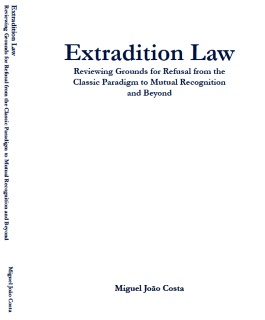Extradition Law: reviewing grounds for refusal from the classic paradigm to mutual recognition and beyond
Since the inception of the modern paradigm of international cooperation in the 18th century, mobility of people and the capacity to commit crimes from a distance have increased exponentially. Extradition is a key instrument for addressing those phenomena. However, several obstacles to effective cooperation endure.
The question this study seeks to answer is whether those obstacles should be removed and, if so, how and to what extent. To that end, the study looks into other areas of the law concerned with transnational issues, and concludes by proposing a model of increased cooperation based on mutual understanding and respect among States.
| PhD thesis written by Miguel João de Almeida Costa - see more Law PhD theses |
Also read
-
On 12 June 2024, Dr Domenico Carolei, Lecturer in Public International Law and Public Law at the University of Stirling, gave a talk entitled 'Charting NGO Accountability: Identifying alternative accountability routes'.
-
The Dutch Research Council (NWO) awarded a grant for the new research project CHILD-WAR by Dr. Marieke Hopman and Dr. Guleid Jama.
-
Two Law PhD candidates of the Maastricht Faculty received awards for their doctoral theses during the 21st International Congress of the International Association of the Penal Law in Paris.



